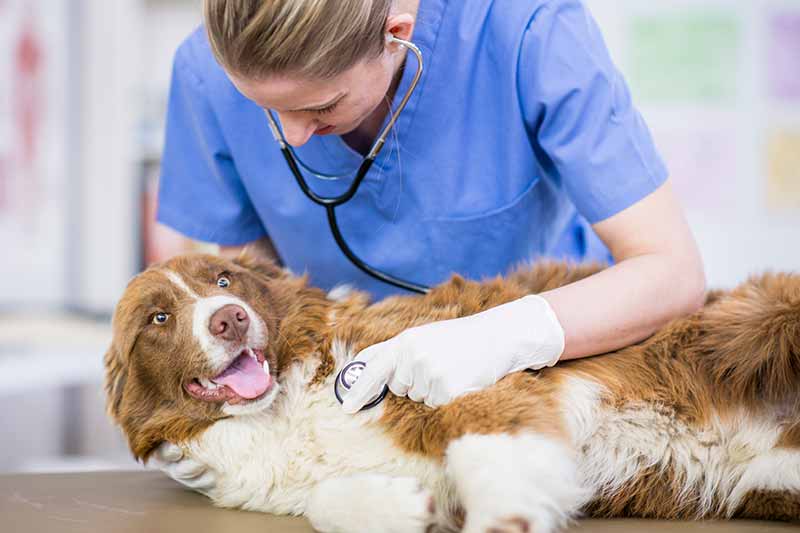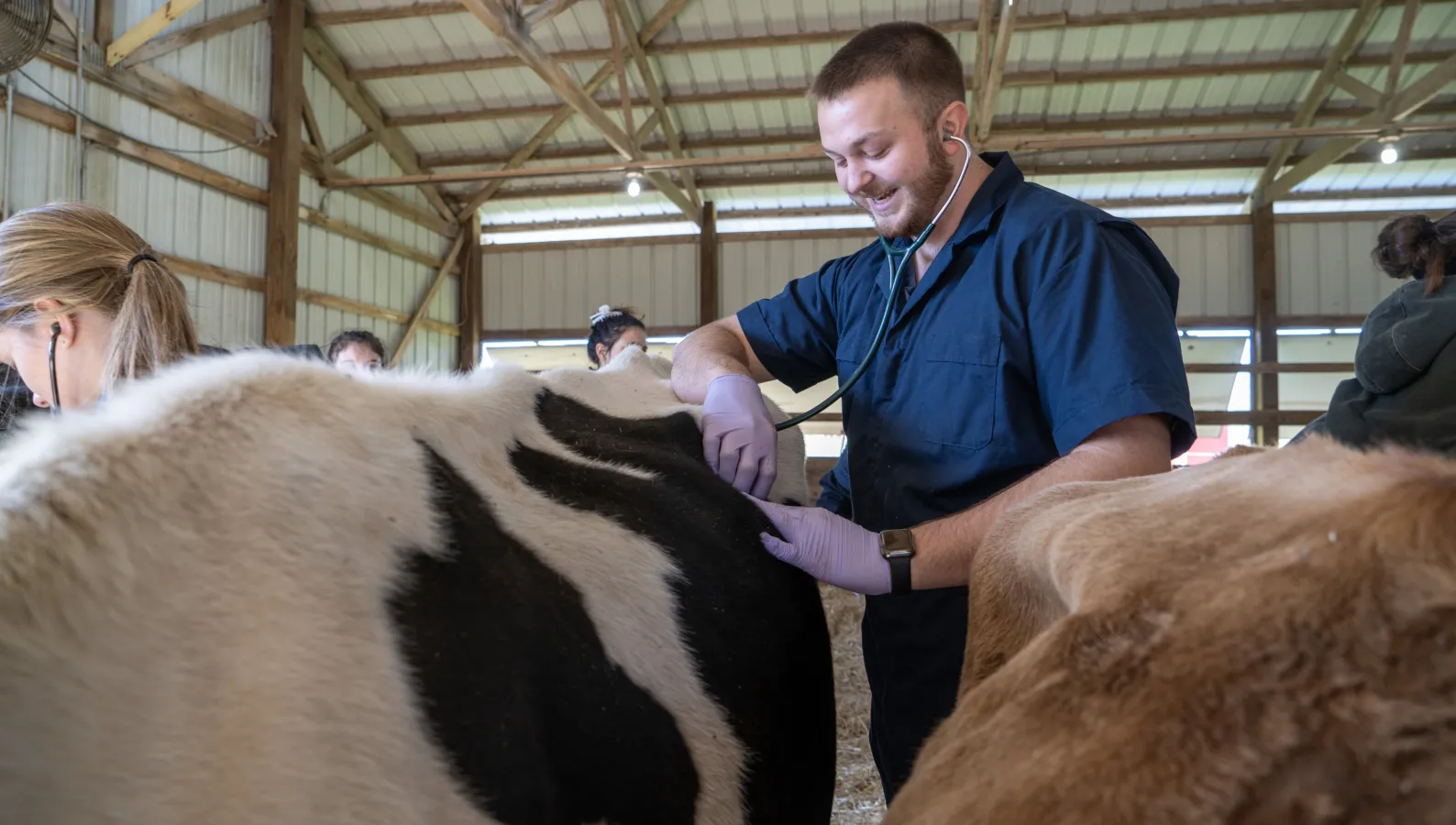What to expect ahead of your pet’s Pet Cancer Surgery
Comprehensive Guide to the Providers Provided by a Veterinary Oncologist
Veterinary oncology includes a broad variety of solutions targeted at dealing with and identifying cancer cells in animals. Pet Cancer Surgery. Oncologists employ sophisticated diagnostic strategies and offer different therapy options customized to every animal's requirements. They also focus on helpful treatment and supply important resources for family pet owners. Recognizing these services is vital for making notified choices. What certain aspects of veterinary oncology can significantly affect an animal's therapy journey?
Comprehending Vet Oncology
Veterinary oncology is a customized area concentrated on identifying and dealing with cancer cells in animals. This discipline incorporates a variety of strategies, from medical treatments such as radiation treatment and immunotherapy to medical interventions aimed at getting rid of tumors. Vet oncologists are educated to identify the one-of-a-kind symptoms of cancer cells in various types, allowing them to customize therapy plans to individual patients.
In addition to typical therapies, vet oncology emphasizes helpful care, which plays an essential role in enhancing the lifestyle for affected animals. This consists of discomfort administration, dietary assistance, and palliative care choices. Collaboration with family pet proprietors is crucial, as they are important to decision-making regarding their family pets' therapy courses. As research study developments, veterinary oncology continues to progress, using new hope and boosted results for pet dogs identified with cancer. Overall, this area is fundamental for attending to the intricacies of cancer cells in buddy animals.
Advanced Diagnostic Techniques
Advanced analysis methods play an essential duty in veterinary oncology, offering essential insights into the existence and degree of cancer in pets. Imaging techniques such as ultrasound, CT scans, and MRI are typically used to picture growths and evaluate their attributes. Additionally, biopsy procedures are necessary for getting tissue samples, enabling for conclusive medical diagnosis and tailored therapy plans.
Imaging Modalities Utilized
Imaging modalities play a necessary duty in the diagnosis and administration of cancer cells in pets. Veterinary oncologists utilize numerous innovative imaging techniques to evaluate growth metastasis, size, and visibility. Radiography, or X-rays, uses a preliminary view of bone and breast conditions, while ultrasound supplies real-time imaging of soft tissues, enabling in-depth analysis of inner organs. Calculated tomography (CT) enhances visualization of intricate anatomical frameworks and makes it possible for 3D reconstructions, assisting in precise lump localization. Magnetic resonance imaging (MRI) is indispensable for soft tissue differentiation, specifically in mind tumors. Additionally, nuclear medicine methods such as positron discharge tomography (ANIMAL) aid determine metabolic task within tumors. Jointly, these techniques improve diagnostic accuracy, guiding effective therapy approaches for oncological clients.
Biopsy Treatments Explained
Following the preliminary assessment through imaging techniques, obtaining a definitive diagnosis typically calls for cells tasting through biopsy treatments. Vet oncologists use different biopsy techniques based upon the lump's place and qualities. Great needle aspiration (FNA) is a minimally invasive approach that extracts cells for cytological exam, ideal for shallow masses. Core needle biopsies supply bigger cells samples and are useful for much deeper tumors, permitting histopathological evaluation. Surgical biopsies entail excising a section or the entire tumor, helping with detailed assessment. These treatments not only verify the presence of cancer yet also aid identify its kind and quality, directing therapy choices. Each biopsy technique is selected thoroughly to stabilize diagnostic accuracy with person safety and security and convenience.
Therapy Choices for Cancer in Pet dogs
When a family pet is identified with cancer cells, a range of treatment alternatives appear to aid manage the illness and enhance lifestyle. Vet oncologists typically advise a multidisciplinary approach customized to the specific animal's requirements, which might consist of surgery, radiation treatment, immunotherapy, or alternate treatments.
Surgical treatment is often used to eliminate growths and afflicted cells, possibly resulting in full remission in many cases. Radiation therapy intends to target and ruin cancer cells, minimizing growth dimension and reducing signs - Veterinary Cancer Specialist. Immunotherapy harnesses the pet dog's body immune system to eliminate cancer better, while alternate treatments might include acupuncture or natural supplements to support total health
Each treatment option lugs its own advantages and threats, and vet oncologists function closely with family pet proprietors to develop a comprehensive strategy that lines up with the pet dog's specific diagnosis and the proprietor's wishes. The supreme objective is to boost the pet dog's comfort and lifestyle throughout their cancer trip.
Radiation treatment for Animals
Chemotherapy is a typical therapy choice for pet dogs detected with cancer and is often utilized along with other treatments laid out by veterinary oncologists. This treatment involves the administration of specific medications designed to target and damage cancer cells, thereby lowering lump dimension and avoiding the spread of the illness. Veterinary oncologists customize chemotherapy methods based on the type of cancer, the family pet's total health and wellness, and the wanted treatment result.
Adverse effects can occur, as these drugs might additionally impact healthy cells. Usual responses include nausea or vomiting, throwing up, and short-lived changes in appetite - Veterinary Cancer Specialist. Vet oncologists are outfitted to take care of these adverse effects effectively, making sure the pet's convenience throughout the treatment process. Regular monitoring via Full Article blood examinations and follow-up consultations is vital to assess the animal's feedback to radiation treatment and make required adjustments. Inevitably, chemotherapy can provide substantial advantages, enhancing the lifestyle for pets facing cancer diagnoses

Radiation Treatment in Veterinary Medicine
Radiation therapy functions as a reliable therapy choice for family pets identified with local growths, offering a targeted approach to cancer management. This technique makes use of high-energy radiation to harm the DNA of cancer cells, preventing their ability to proliferate. It is especially helpful for lumps that are not responsive to surgical elimination or for situations where surgical treatment may not be possible due to the tumor's area.
Vet oncologists customize radiation procedures based upon lump size, place, and type, as well as the animal's total health. Treatment can be delivered through outside beam radiation or brachytherapy, each with distinctive advantages. Normally, numerous sessions are required to optimize performance while decreasing adverse effects.
Although animals might experience short-term reactions such as skin inflammation, the general goal is to reduce lumps and relieve signs and symptoms, inevitably improving the animal's diagnosis and lifestyle. Appropriately, radiation therapy plays an essential role in comprehensive cancer care.
Palliative Care and Quality of Life
Palliative care in veterinary oncology concentrates on enhancing the high quality of life for family pets encountering terminal illnesses, ensuring convenience and dignity in their final days. This customized strategy focuses on discomfort management, symptom control, and emotional assistance. Vet oncologists evaluate each pet's individual needs, customizing treatments to reduce pain and boost overall health.
Techniques may include providing drugs for pain relief, taking care of nausea or vomiting, and attending to various other stressful signs. Additionally, nutritional assistance is usually provided to preserve stamina and improve appetite. The emotional element of palliative care is equally crucial; creating a tranquil atmosphere helps in reducing stress and anxiety for both pet dog and owner.
Ultimately, the objective of palliative treatment is to enable pets to appreciate their staying time with as much happiness and dignity as possible. By focusing on convenience and high quality of life, veterinary oncologists play an important function in ensuring that family pets and their family members navigate this difficult journey with empathy and understanding.
Assistance for Pet Dog Owners Throughout Therapy

Emotional Support for Owners
Charting the emotional landscape throughout an animal's cancer cells treatment can be an overwhelming experience for owners. The unpredictability surrounding medical diagnosis and diagnosis can bring about feelings of vulnerability, stress and anxiety, and unhappiness. Veterinary oncologists acknowledge the importance of emotional assistance and usually give advice to assist proprietors navigate this difficult journey. Communication is crucial; going over therapy choices and prospective results can relieve some fears. Additionally, using peace of mind that emotional responses are legitimate fosters a helpful environment. Lots of oncology facilities might also recommend support system or therapy services customized for animal proprietors, facilitating common experiences. Urging proprietors to prioritize self-care during this moment is essential, as their emotional wellness straight affects their pet dog's convenience and overall treatment experience.

Resources and Educational Products
Steering through the intricacies of an animal's cancer therapy can be intimidating for proprietors, making accessibility to instructional products and reputable sources vital. Veterinary oncologists usually provide a variety of handouts, brochures, and online materials that discuss therapy choices, prospective adverse effects, and treatment methods. These resources aid demystify the procedure and equip family pet Veterinary Cancer Specialist owners to make informed choices. browse around here Additionally, lots of oncology clinics provide access to sustain teams and discussion forums where proprietors can connect with others encountering similar obstacles, cultivating a sense of area. Educational webinars and workshops carried out by vet experts further boost understanding, ensuring that owners are well-appointed to browse their family pet's journey with cancer cells treatment with confidence and expertise.
Regularly Asked Concerns
Just How Can I Prepare My Animal for a Veterinary Oncology Browse Through?
Preparing a pet dog for a vet oncology visit includes event clinical records, noting signs and symptoms, and making certain the pet fits. A calm temperament and familiar products can aid reduce anxiousness during the consultation.
What Are the Indicators My Animal May Have Cancer?
Signs that a family pet may have cancer cells include unexplained fat burning, consistent vomiting or looseness of the bowels, uncommon swellings or swellings, lethargy, adjustments in cravings, trouble breathing, and changes in actions. Motivate vet interest is necessary.
Just How Can I Assistance My Animal Psychologically Throughout Therapy?
Sustaining an animal emotionally throughout treatment includes providing convenience, keeping routines, offering gentle love, and guaranteeing a tranquil atmosphere. Participating in quiet play and routine friendship helps minimize tension and promotes a feeling of security.
Are There Alternative Therapies for Pets With Cancer cells?
Alternative therapies for pets with cancer consist of acupuncture, organic therapies, and dietary support. These methods might enhance traditional therapies, advertising total health. Consulting with a veterinarian is vital for efficient and secure integration of alternate treatments.
What Costs Should I Expect for Vet Oncology Services?
The awaited expenses for veterinary oncology services can differ significantly, usually influenced by diagnostics, therapies, and ongoing care. Animal proprietors must plan for expenses varying from consultations to specialized treatments, reflecting the complexity of cancer cells monitoring.
Partnership with pet proprietors is crucial, as they are integral to decision-making regarding their pets' treatment courses. Each treatment option carries its own benefits and dangers, and veterinary oncologists function very closely with pet owners to design a thorough plan that straightens with the pet's particular diagnosis and the owner's dreams. Animals may experience momentary reactions such as skin irritation, the general aim is to reduce lumps and reduce signs and symptoms, eventually improving the pet's prognosis and high quality of life. Assistance for animal proprietors during therapy is important in steering via the emotional obstacles linked with a family pet's cancer medical diagnosis. Preparing an animal for a veterinary oncology go to entails event medical records, keeping in mind signs, and making certain the animal is comfortable.